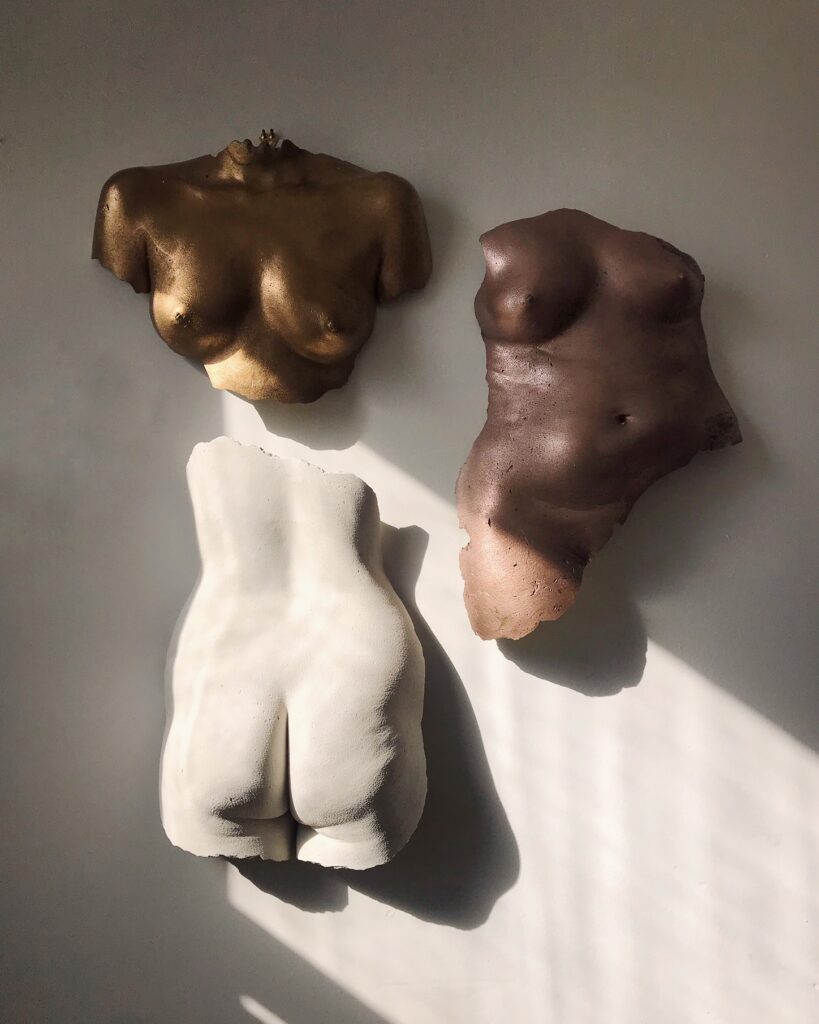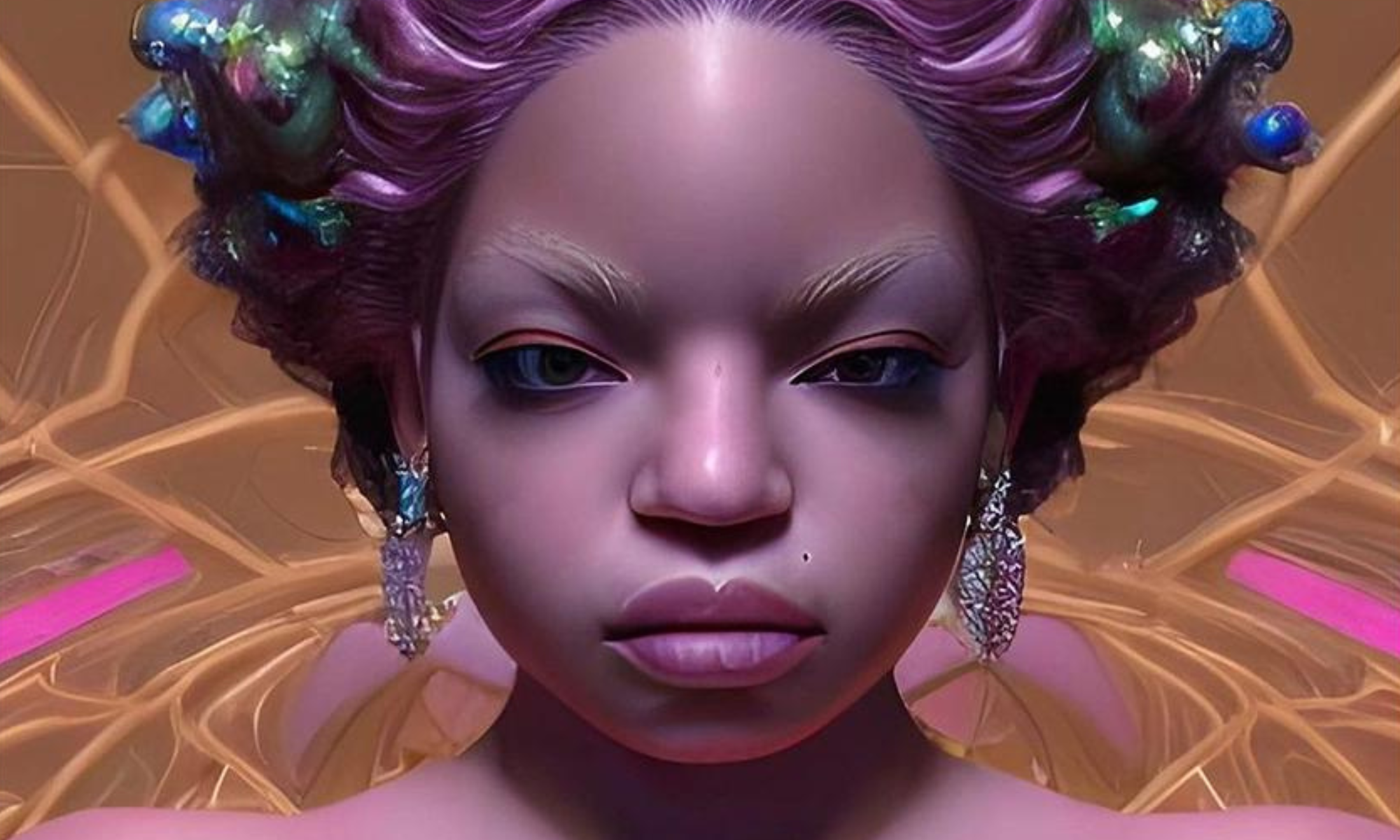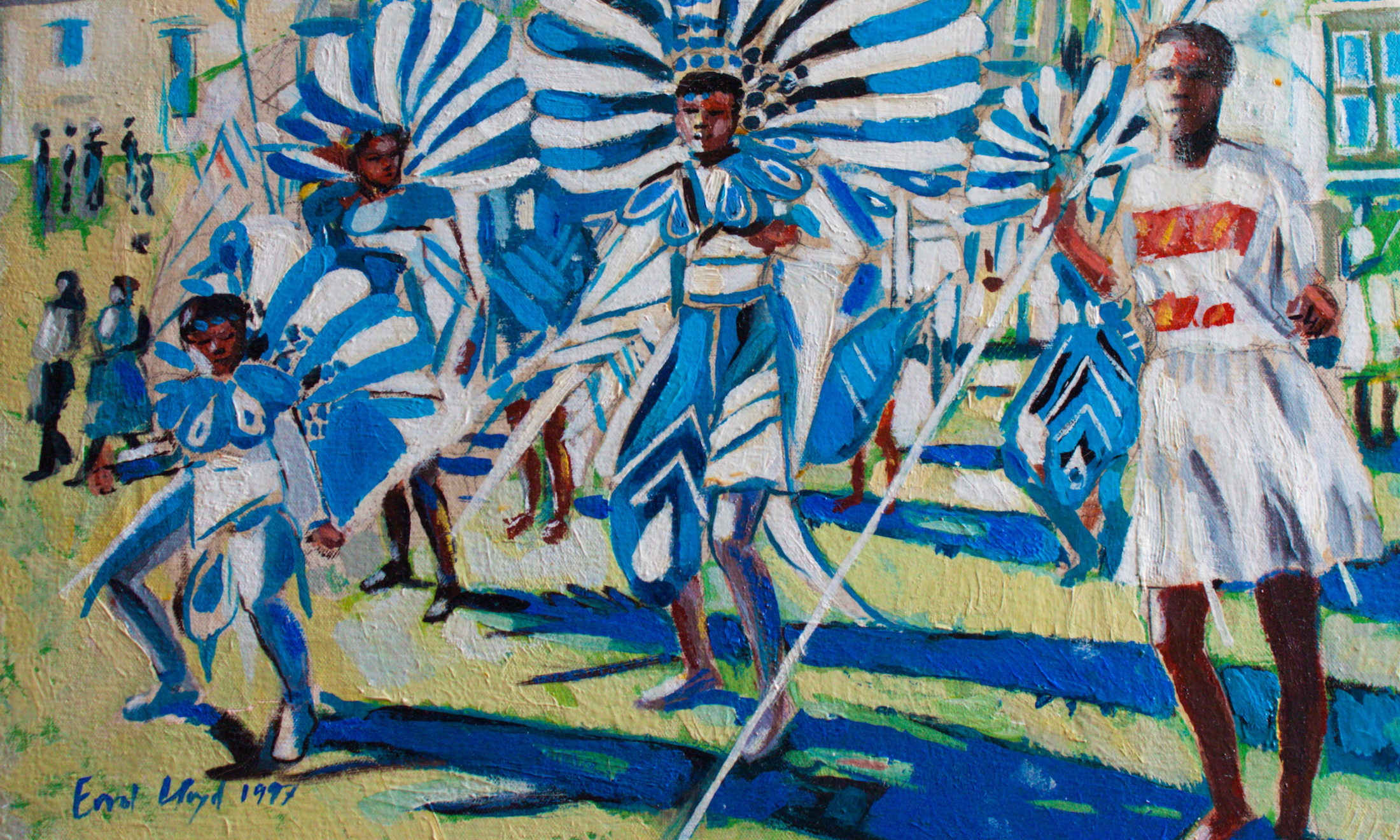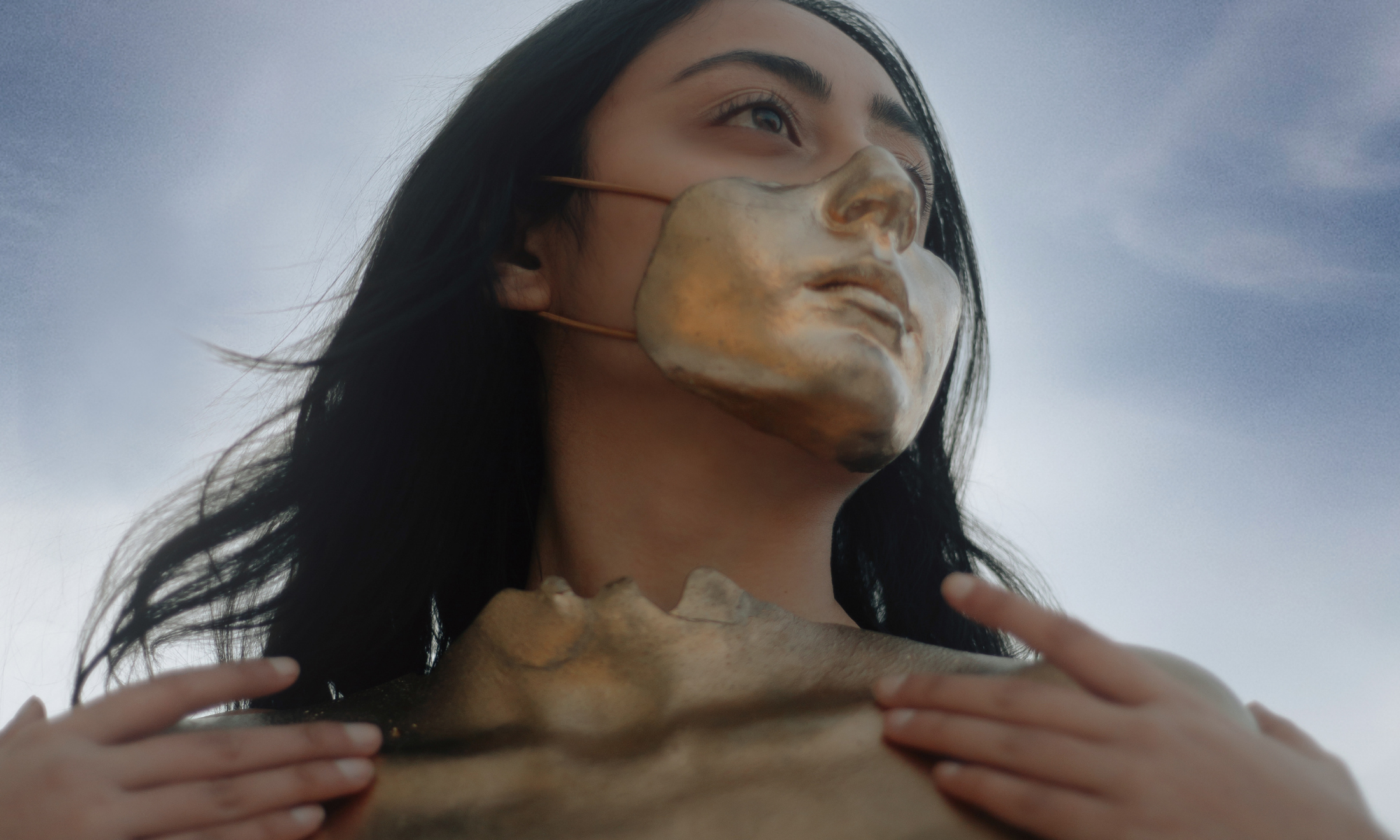
Courtesy of Misha Japanwala
Misha Japanwala on casting Cardi B’s baby bump and celebrating women’s bodies
Misha Japanwala finds so much beauty in women's bodies that she turns them into art. But she's received backlash from men and other Muslims.
Neelam Tailor
15 Jul 2021
After her surprise performance at the BET Awards last month, Cardi B broadcast her second pregnancy to the world on Instagram. The image is a side profile of the rapper standing majestically, wearing nothing but her tattoos, earrings and the pièce de résistance: a powder white breast and stomach plate to match her nails crafted by Misha Japanwala. It has since garnered nearly 14 million likes.
The white resin cast of her body is a beautiful piece of art by an on-the-rise Pakistani artist. It mixes rough edges with fine detail to make resin casts, which make wearers, like Cardi B and model Cindy Bruna posing for Spanish Vogue, look part-sculpture. Misha loves body casting because it shows every single pore and wrinkle: “I think it’s a beautiful thing to be able to create this piece, this exact replica of this part of your body, and to hang it up next to a painting on your wall and be like, that is a work of art.”
Within 48 hours of Cardi B’s stylist Kollin Carter calling Misha up with a mysterious high-profile pregnancy request, the 26-year-old designer had got on a flight from New York to LA and was working on the piece. Her intimate time rubbing silicon over Cardi B’s pregnant belly is top secret stuff and after signing an NDA, the most she can say is “it was an amazing experience”.
After sleepless nights working to get the cast just right, Misha sent it off to Kollin and, in fear of it getting pulled, suppressed her excitement. “I have this rule where we don’t celebrate until it’s published until we see it in print, or until we see the dollars in the checking account,” she smiles, with the eyes of someone who has learned the hard way. “That’s just the nature of working in fashion.” Of course, Misha had notifications on for Cardi B’s Instagram posts and, while perusing LA’s LACMA gallery, she felt her phone buzz: the rapper had posted a new photo. Misha could make out her work of art from the tiny image on the notifications page and let out a far-from-art-gallery-friendly gasp, before running over to her fiance. “We were walking past Picasso paintings just looking at our phones,” she says with so much joy, it’s as if she’s back in the moment.
Already on the Forbes 30 Under 30 Asia list, with an Instagram following of over 48k, and having had her work picked out by Gigi Hadid for a special edition of V Magazine, Misha has had her fair share of success. But Cardi B is her biggest career moment yet.
Sadly, she couldn’t just bask in the glory but had to prepare herself in equal measure for a steady stream of hate. Misha gets regular abuse, the majority of which is from Pakistani men, often calling her a “pervert”, “nipple devil”, “sex addict”, and a “shameful Muslim”. Sometimes she uses Urdu scripture on her drawings of the female body, like the word “azaadi”, meaning freedom, when making a point about autonomy. When Misha does this, she’s often told by Muslim commenters that she doesn’t have the right to use Urdu, despite it being her first language.
While the visual artist is criticised by both men and women, she says she always finds the latter more painful. “It’s a problem that women are seeing their own bodies as something that’s offensive – something that’s obscene – and are believing that they need to then police other women,” she adds.
The criticism does get to Misha, who admits she is a deeply emotional person and jokes that crying is “basically a hobby at this point”. Though she doesn’t let upsets deter her from making her art: “The hate I get shows me just how many people feel threatened by a woman simply speaking her mind, sharing her thoughts, and exercising her right to her own body. And that is something that needs to change. Women should have the freedom to express themselves without the fear of a reaction.”
Misha mostly publishes her work via Instagram, often accompanied by a detailed caption explaining her thought process, concerns for the world and what she hopes to provoke in her audience. A lot of artists just post images of their work without captions and let the audience interpret it, but Misha doesn’t and she’s not sure exactly why. “I think, maybe, it’s because I am a Pakistani woman that’s creating work depicting women nude and because of that, I feel like I do have to explain myself and defend myself because so many people think it’s not okay.”
“The downfall of the patriarchy is my dream project”
Misha Japanwala
Misha left what she describes as quite a “sheltered” and “privileged” life in Karachi at 19 to go to Parsons School of Design in New York. “Art school really throws you into the frickin’ deep end,” she says with wide eyes. Suddenly, being an immigrant was a core part of her identity, and that brought her experience as a Pakistani woman into sharp focus.
“I just thought that I would go to fashion school and then move back to Pakistan and make pretty lehengas [skirts] for brides.” Instead, in her final year, she found herself wanting to make a deeply personal collection with intersectional feminism at its core, and surrounded by casts of her naked body. As part of the process for deciding what her thesis fashion collection should look like, Misha collected newspaper clippings that jumped out to her. They were all about violence against women – honour killings, domestic abuse and especially violence in her home country.
Experiences of growing up in Pakistan, seeing newspapers telling stories of violence against women every morning, have shaped Misha’s work: “That was something that I felt needed to be addressed,” she says. At 16, when her boyfriend blanked her all night at a party because she was wearing a strapless top while other girls wore sleeves, the policing of her body lay the groundwork for her current passions. So did the fact that growing up, she wasn’t allowed to wear clothes that were a tight fit on her body – that she’s now chosen to design garments that couldn’t be a tighter fit is no coincidence.
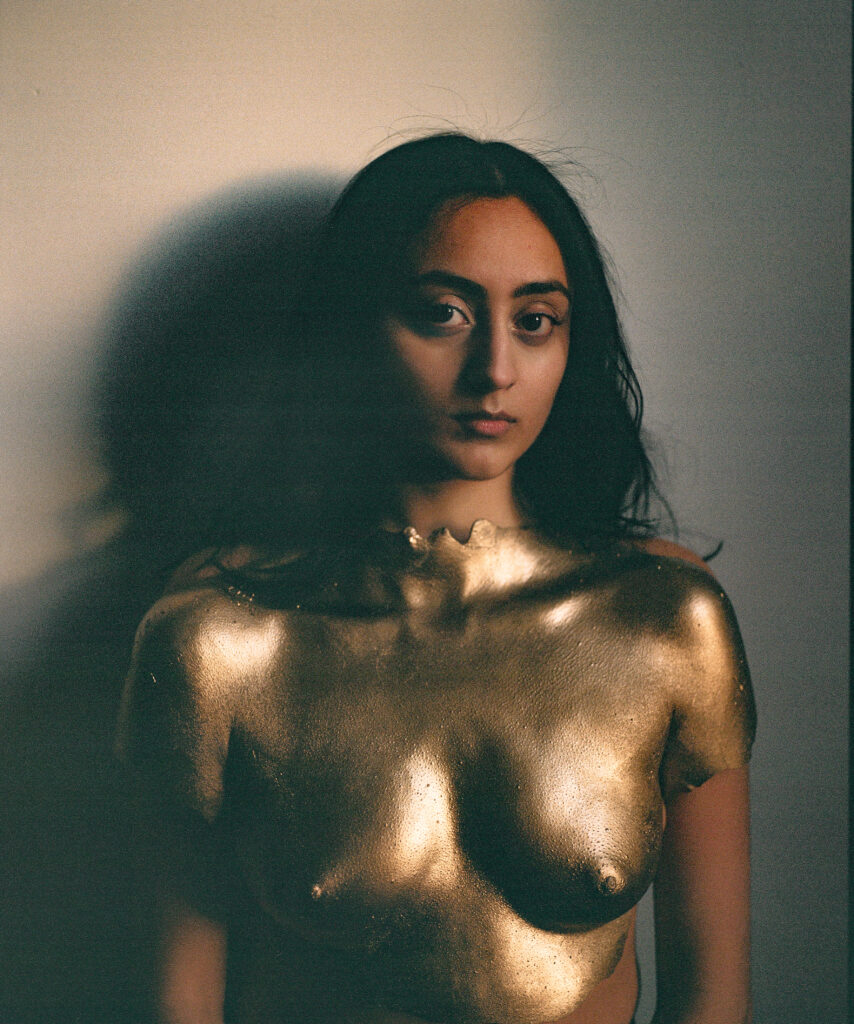
“There’s a lot of anger in my work,” she explains with raw emotion. “How dare we have to face the battles we do, just because we were born into the body we were born into, you know what I mean?”
That’s the point of her work: to reframe women’s bodies as vessels, not sexual objects. Frustrated at the critique she often gets for equating nudity with freedom, Misha says: “I respect a woman’s choice to fully cover her body as much I respect another woman’s choice to fully expose hers. It’s not about equating liberation with nudity at all; it’s about recognising the fact that whether you are fully covered, or fully uncovered, your body is still seen as something that is incorrect by society. And that’s what I’m trying to get to.”
We laugh (so we don’t cry) at how South Asian parental pride is often unsaid and is only known through some sort of seventh sense. So it is a huge and affirming gesture when her dad, from a conservative Muslim Bohra family in Karachi, Pakistan, sends her press interviews to all his Whatsapp contacts. She’s quick to acknowledge the privilege she has as a Pakistani woman, creating this kind of art while staying safe and with the support of her family.
The fire within her is burning white and every comment calling her a “pervert” or a “disgrace to Islam” is like petrol. What is her next dream project? She giggles, “The downfall of the patriarchy is my dream project.”

